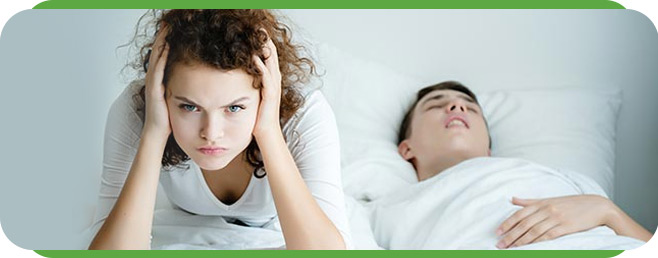Polysomnography for Sleep Disorders
Koala® Center For Sleep & TMJ Disorders Provide Polysomnography for Sleep Disorders. There Are Over 18 Million People in the United States Alone Who Suffer From Obstructive Sleep Apnea and Sadly, It is Estimated That Over 90% Go Undiagnosed. For More Information Call Us. We Are Serving Patients From All Over the USA. Locations in Bloomington IL, Peoria – Dunlap IL, El Paso TX, Wausau WI.


My physician suggested I get something called an “overnight PSG” done to determine whether I am suffering from Obstructive Sleep Apnea. What is this and what does it involve?
Obstructive Sleep Apnea (OSA) is the most severe form of Sleep Disordered Breathing (SDB), a condition that results from the obstruction of the oral and/or nasal airway during sleep. Snoring is a manifestation of the disorder at its mostly benign, although it does signify the onset or existence of a breathing problem during sleep. Upper Airway Resistance Syndrome (UARS) is a small degree less severe than OSA, and may be accompanied by gastroesophageal reflux, depression, and asthma.
An overnight PSG, or polysomnogram, is a good way to determine the severity of your Sleep Disordered Breathing problem. Polysomnography is simply a series of tests that are performed while a patient is asleep. A PSG records channels, different physiological processes that include taking note of blood pressure, performing electroencephalography (EEG), recording eye movements during REM sleep, monitoring any movement such as leg or arm jerks or shifts, night terrors, and recording apneic or hypopneic events.
Sleep lab technicians will monitor the progress of the tests throughout the night. They are skilled employees of the sleep lab, and are certified in the care of patients attending the sleep lab.
The patient spends the night in a sleep lab, a laboratory devoted solely to monitoring patients while they sleep. The patient is hooked up via sticky electrodes (attached painlessly with what looks like a bandage to the skin) to all the different apparatus that will be monitoring the blood pressure, REM sleep, et cetera.
The patient is permitted to fall asleep. For some, this may be difficult. Many sleep labs have comfortable beds and take great care to provide a restful environment for the patient. In many sleep labs, parents are allowed to accompany their children to the sleep lab and may stay in the room with the child.
Some research suggests patients sleep in the sleep lab over a period of subsequent nights, so as to obtain the best and most realistic information possible concerning the patient’s sleep and the possible existence of Sleep Disordered Breathing.
Following the PSG, the physician associated with the sleep lab will examine the results, and will interpret the data collected. That information is reviewed with the sleep physician and then a treatment plan is given to the patient, outlining various treatment options such as continuous positive airway pressure (CPAP), surgery, and oral appliances.

Additional Services You May Need
▸ KoalaKIDZzz®
▸ Sleep Apnea
▸ Snoring
▸ TMJ Disorder
▸ Fatigue
▸ Sleep Disorders
▸ Weight Loss
▸ CPAP Alternative
▸ Oral Appliances




